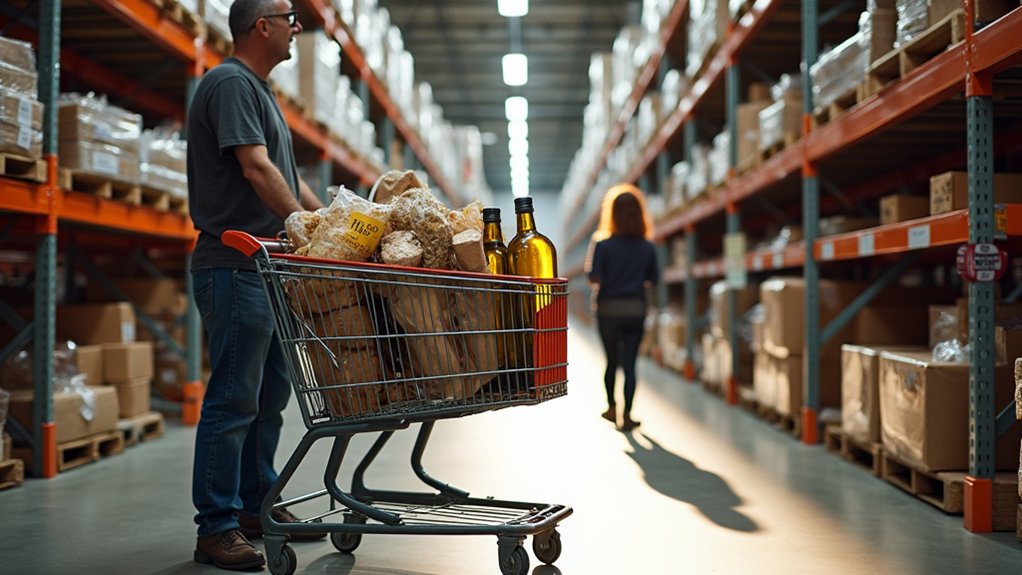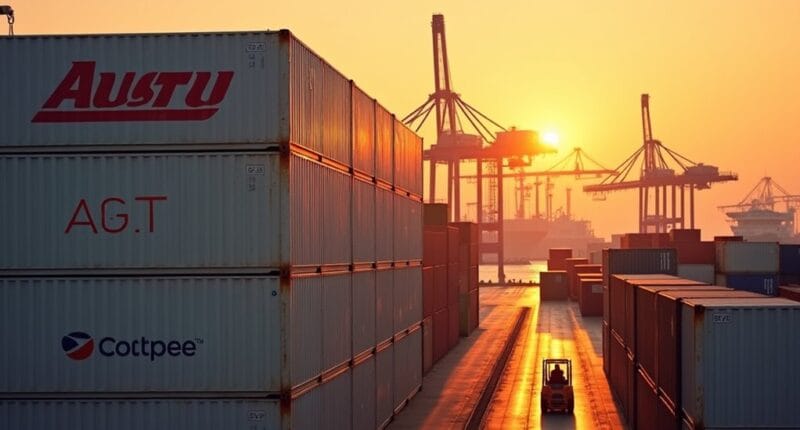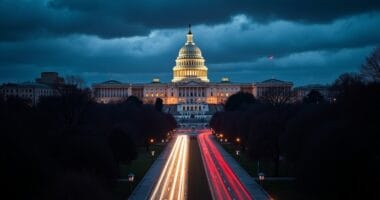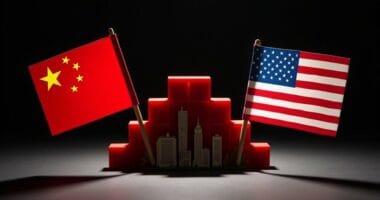Costco’s battle with tariffs is reshaping American shopping habits in unexpected ways. The retail giant’s massive scale and membership model help shield customers from price hikes, leading to increased stockpiling and bulk purchases. Shoppers are becoming more strategic, using warehouse clubs as financial shelter against economic uncertainty. Even wealthy customers are hunting for luxury deals at Costco now. The shifting retail landscape suggests this might be just the beginning of a major consumer transformation.

Few retailers are better positioned to weather the trade war storm than Costco. With roughly a third of its U.S. sales coming from imported products, you’d think the retail giant would be sweating bullets over tariffs. But here’s the thing: Costco’s massive scale lets them play hardball with suppliers in ways that smaller retailers can only dream about.
The membership warehouse club isn’t just sitting around waiting for prices to spike. They’re actively negotiating with suppliers to keep costs down, and their sheer size gives them serious leverage. Less than half their imports come from the usual suspects – China, Mexico, and Canada – which means they’ve got options. Lots of them. Economists warn that annual financial losses could significantly impact average and low-income households due to tariff-driven inflation.
Meanwhile, shoppers are getting crafty. Some are stockpiling goods before prices rise, while others are becoming more selective about what goes in their carts. It’s fascinating how tariff anxiety is actually driving more people through Costco’s doors. In fact, warehouse clubs experienced a 9.7% foot traffic increase compared to last year. Apparently, nothing says “hedge against inflation” quite like a 30-pack of toilet paper and a rotisserie chicken.
Panic buying meets penny-pinching as shoppers flock to Costco, turning bulk purchases into a shield against economic uncertainty.
The numbers tell an interesting story. While the S&P 500 took a 15% nosedive in 2025, Costco’s stock barely flinched, dropping less than 1%. Loop Capital wasn’t kidding when they labeled Costco a “tariff winner.” Their membership model keeps customers coming back, even when times get tough. It’s like a weird retail security blanket. Smart investors know that risk tolerance plays a crucial role in weathering market volatility.
The company’s battle plan isn’t rocket science. They’re diversifying their sourcing, doubling down on operational efficiency, and leveraging their private-label brands.
But here’s what’s really interesting: consumer behavior is shifting. Shoppers are making more planned purchases, focusing on essentials, and even wealthy customers are hunting for deals on luxury items at Costco.
Sure, margins are under pressure as Costco tries to shield customers from price hikes. But their strategy of putting members first might just redefine how Americans shop during uncertain times. Who knew that bulk buying could become a form of financial self-defense?





